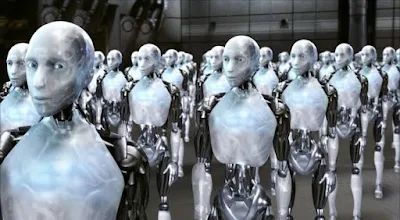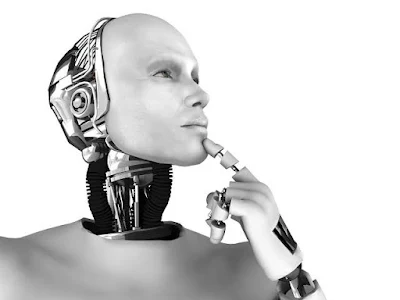- An age-old question: “How do we think?”
- With the creation of computers came the belief that we will be able to reproduce intelligence using computers
- What is intelligence anyway?
- And what do we mean by artificial intelligence?
And even before we invented the computer, we attempted to create
copies of ourselves . . . .
Historical Attempts: Frankenstein
- Original story by Mary Shelley “Frankenstein, or the modern Prometheus”, published in 1818, describes an attempt by scientist Victor Frankenstein to create artificial life
The Turk
- In 1770 Wolfgang von Kempelen constructed an automaton that could play chess and perform a Knight’s tour
- Shown at numerous exhibitions for 80 years across Europe and America
- Merely a skillfully constructed mechanical device for illusionists
Amazon Mechanical Turk
- A large number of people payed to perform HITs (Human Intelligence Tasks) – tasks requiring human intelligence
- “Artificial Artificial Intelligence”, crowdsourcing
Robot
- In 1921 Czech writer Karel Capek wrote the play ˇ R. U. R. (Rossum’s Universal Robots)
- Robot (Czech robota) – labour, forced labour
Isaac Asimov: “I, robot”, 1942
Three Robot Laws:
- A robot may not injure a human being or, through inaction, allow a human being to come to harm
- A robot must obey any orders given to it by human beings, except where such orders would conflict with the First Law
- A robot must protect its own existence as long as such protection does not conflict with the First or Second Law
 |
| I, Robot (20th Century Fox, 2004) |
Computers and electronic brains
- ENIAC, the first electronic computer, was developed in 1945
- In the early era of computer development, computers were considered equivalent to electronic brains
Can machines think?
- Today, we use computers to control complex processes, for solving complex problems, decision making, reasoning, natural language . . .
 |
| Rodney Brooks i robot Cog, MIT Media Lab |












0 Comments